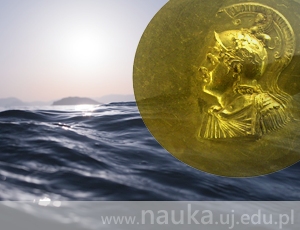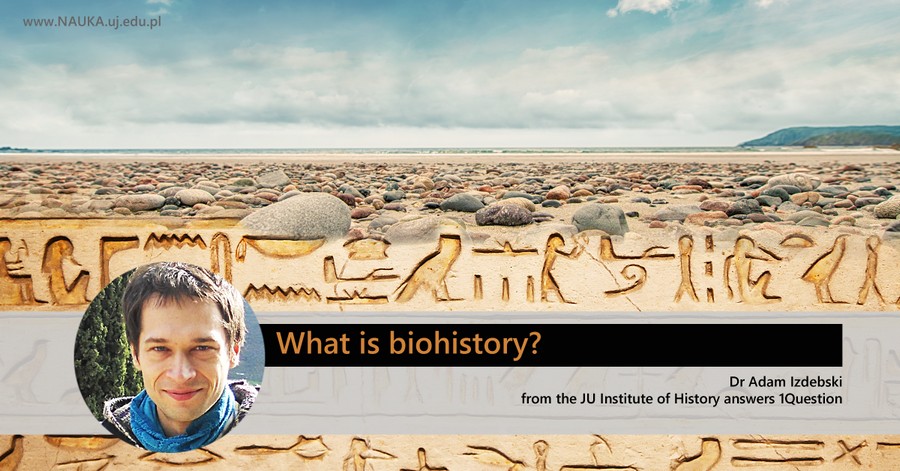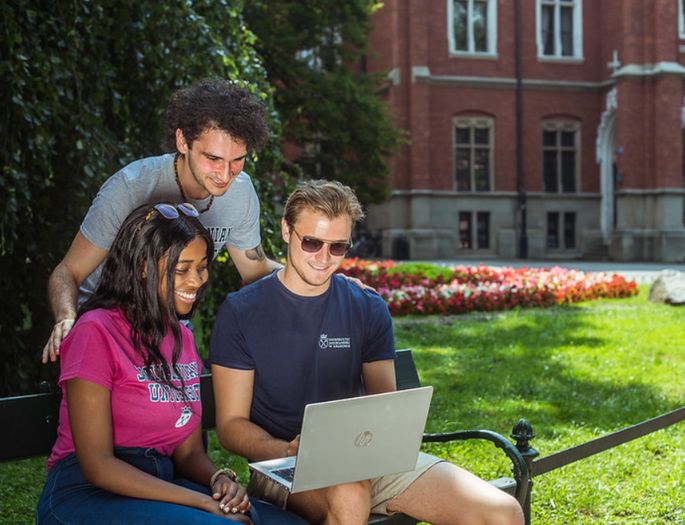
Is there a relationship between history and biology? It turns out that there is. When you combine modern research techniques and interdisciplinary approach comprising biology, history, archaeology and geography, you get biohistory. Dr Adam Izdebski from the JU Institute of History further explains the concept.
1Question is a series of articles by the University Marketing science communication unit, in which specialists and experts from various fields briefly discuss interesting issues related to the world, civilisation, culture, biology, history, and many more.
Biohistory (also known as environmental history) is concerned with mutual relations between societies (from ancient history to the 20th century) and their environment. Research conducted by historians specialising in this area is crucial in the current situation of our planet, since we have to face the consequences of several hundred years of pollution and climate changes.
Where did it come from?
Environmental history emerged in the 19th century as a result of a lengthy process of broadening the scope of historians' interests. Initially, only large-scale events were studied, such as the history of states and nations. This was changed by French historians in the interwar period. Since then, society, economy, everyday life and traditions became legitimate research subjects.

Another great change came in the 1960s and 1970s. It was then that the new social movement began, mainly in the United States. The movement's idea was to study social groups and address topics that were previously unnoticed in the main discourse (such as the history of women or minorities). At the same time, Western societies started to understand that their modern lifestyle affects the environment, while the natural resources which power our commerce and industry are slowly but surely being depleted. Because of that, social movements grew in power.
American historians decided to answer their call by introducing new courses into university curricula and researching hitherto ignored subjects. An so, already in the 1970s, many university faculties offered their students courses on relations between humans and nature in Northern America, particularly in the last 200 years. Simultaneously, scholars began investigating the importance of nature in American culture, starting in the colonial times. Gradually, more and more researchers focused on the changes in environment and ecology related to European colonisation and industrialisation.
Biohistory today
Currently, in the United States, environmental history is a full-fledged academic discipline, along with political and social history. It's present at most universities, and scholars organise various conferences and debates to discuss the future of American wildlife and lifestyle. In Europe, however, the situation is a little bit different, mainly because our social changes in the 1960s had a different nature. Another reason is that most European schools of history are still strongly influenced by the Annales French school of history mentioned earlier. Nevertheless, it's still important to study environmental history in the European context. And it seems that many people believe that, since a great number of universities in Europe (including Poland) is now interested in hiring environmental historians.
The results of the research conducted at the JU Faculty of History suggest that ancient and medieval societies were complex and organised enough to adapt to or even combat severe climate changes.
Scholars at the Jagiellonian University have studied the influence of climate change on the history of Byzantium and the Mediterranean in ancient history and the Middle Ages for a few years. Recently, their research was published in a special edition of the prestigious Quaternary Science Review, devoted to this subject in its entirety.
The results of the research conducted at the JU Faculty of History suggest that ancient and medieval societies were complex and organised enough to adapt to or even combat severe climate changes (e.g. few decades of reduced rainfall in seasons crucial for growing crops). For over a year, Polish environmental historians have been working on integrating their community and developing our knowledge about our country's biohistory. One of the key issues is to determine what shaped the current environment of Poland the most: was it the Middle Ages, or the "grange ecological revolution" in the 16th century?
The researchers have also prepared a project concerning the environmental history of Kraków, the aim of which is to investigate whether the ecological problems which the city currently faces are related to the regions industrialisation or if they are inherent to the city's location. The project is funded by the National Science Centre.
Original text: www.nauka.uj.edu.pl





